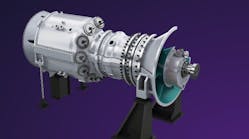Scotland-based carbon capture startup CCU International has delivered the capture and refinement system and is starting its operation for the Flue2Chem project, which plans to turn flue gas from a paper mill into ingredients for household cleaning products.
The goal is to create a circular economy around carbon dioxide emissions and is also part of a United Kingdom net zero plan. One year ago, Aberdeen-based CCU landed the contract with global industrial firm Unilever and the Society of Chemical Industry (SCI).
The Flue2Chem project is also supported by the UK government through its Innovate UK program. The first stage is capturing biogenic carbon from the flue gas emissions at the Holmen Iggesund Paperboard Mill in Cumbria, northern England.
"Capturing carbon dioxide and utilizing it back into the industry supports a circular carbon economy and makes significant contributions to net zero goals," CCU International Co-Founder and CEO Beena Sharma said in a statement. "Our technology is designed to not just capture carbon but also refine the CO2 to any grade, therefore providing multiple options for both utilization and storage."
The new CCU equipment will capture and work to transform the CO2 into surfactants—active ingredients in cleaning products. The University of Sheffield collaborated with CCU to develop the equipment.
“Achieving the installation and commissioning of the capture equipment on our site is a massive milestone,” Ian Black, with Holmen Iggesund, said in a statement. “The first gas samples have been extracted for analysis. Work will continue over the coming days and weeks to enable the study and optimization of the carbon capture process and equipment during this planned operational period and supply carbon dioxide into the rest of the project.”
The Flue2Chem effort has united 15 industrial firms, which account for more than $82 billion of the UK sector value. Unilever is a leader in the partnership and previously has piloted similar carbon capture projects converting CO2 into laundry detergent in China and hand dishwashing soap in South Africa, according to reports.
If the project at the Holmen Iggesund Paperboard Mill is successful, project developers contend the process could be scaled to develop other products currently supplied by the petrochemical industry.
“Flue2Chem is a unique opportunity to demonstrate how UK industry can be de-fossilized,” said Peter Styring, a University of Sheffield professor and leader of the team that developed the carbon capture technology over a 12-year period. “The inclusion of CCU International in the project has allowed the award-winning CO2 refining technology to achieve an order of magnitude scaling in just a few months, much quicker than could otherwise have been achieved.”
Iggesund Paperboard is one of the biggest producers of virgin fiber paperboard in Europe. It is owned by Swedish-based Holmen Group.
Carbon-capture technologies are being introduced around the world to reduce the greenhouse gases emitted from industrial chimneys. Even so, the process is expensive, although a report by the International Energy Agency says it only adds about 10% in operational costs to industrial plants.
Turning the CO2 into useful products would not only eliminate waste byproducts but also create a value chain to offset carbon capture investments.
Many carbon capture projects are designed to take the captured emissions and store them underground.
U.S.-based energy companies tackling carbon capture projects include ExxonMobil, Occidental Petroleum, NRG Energy, and Valero. Industrial manufacturers working on or exploring projects include Lehigh Hanson and U.S. Steel, among others.





